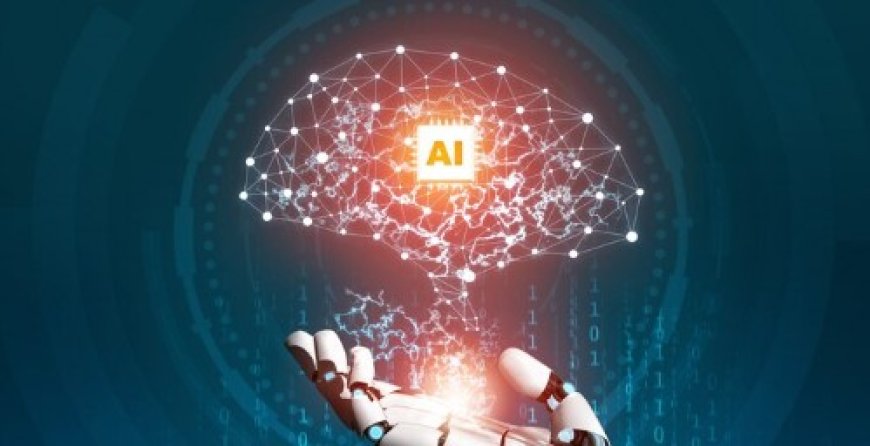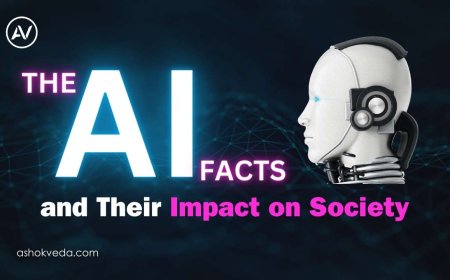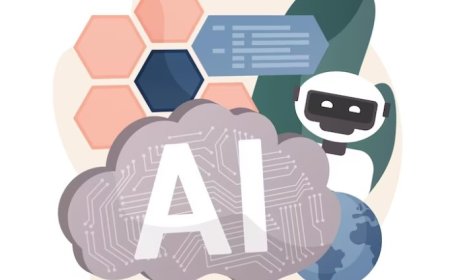The Power of AI Technology
Explore the transformative impact of AI technology on industries, enhancing efficiency, innovation, and decision-making.

Many technical advancements in the modern quickly changing world have as much promise and the ability to have a revolutionary influence as artificial intelligence (AI). Artificial intelligence (AI) technology has become an impulse for advancement, changing how we live, work, and interact with the world around us. It may help with everyday chores or completely transform entire industries. As a society as a whole, businesses, and individuals alike must recognize the power of AI technology as we balance on the verge of a new era marked by innovation and digital advancement.
Artificial Intelligence (AI) technology includes a wide range of applications, including robotics, autonomous systems, natural language processing, and machine learning techniques. With every development, artificial intelligence (AI) expands the limits of what is possible, creating new opportunities and solving challenging problems in a variety of industries. As we learn more about AI's potential, it becomes increasingly obvious that its effects go far beyond simple automation; it can unlock insights, increase productivity, and promote innovation on a scale that was previously imagined. accepting the future in this age of rapid change and disruption involves recognizing AI's ability to steer us toward a more intelligent, connected, and sustainable future.
Artificial Intelligence (AI) technology includes a wide range of applications, including robotics, autonomous systems, natural language processing, and machine learning techniques. With every development, artificial intelligence (AI) expands the limits of what is possible, creating new opportunities and solving challenging problems in a variety of industries. As we learn more about AI's potential, it becomes increasingly obvious that its effects go far beyond simple automation; it can unlock insights, increase productivity, and promote innovation on a scale that was previously imagined.
To stay ahead in an ever-changing market, it is important to accept the possibilities of AI technology. Businesses are using AI to improve consumer experiences, speed processes, and extract knowledge from data. AI-driven apps are helping people by simplifying and improving the efficiency of tasks. It's not only vital to understand AI's potential and future effects, but also crucial to navigating the world we live in.
Recognize the difficulties in implementing AI
-
Quantity and quality of data: For AI algorithms to learn efficiently, a lot of high-quality data must be collected. Acquiring and selecting this kind of data can be difficult, particularly in sectors where data is insufficient, divided, or of different quality.
-
Data privacy and security: Data security and privacy are major problems since AI systems frequently handle private or sensitive data. Strong security measures and ethical issues are needed to guarantee compliance with laws like the General Data Protection Regulation (GDPR) and to prevent breaches of data.
-
Fairness and bias: Artificial intelligence systems can unintentionally previous prejudices in the data they are trained on, producing unjust or excluding results. Careful consideration of data selection, algorithm design, and continuous monitoring to guarantee equal treatment are necessary for addressing bias in AI models.
-
Explainability and transparency: Deep learning-based AI algorithms, in particular, can be quite complex and transparent, making it hard to understand how they make judgments. Building faith and accountability in AI models requires achieving flexibility and explainability, particularly in high-stakes applications like criminal justice and healthcare.
-
Skills gap and workforce readiness: Using AI technology frequently calls for specific knowledge of software engineering, data science, and machine learning. A major difficulty is closing the skill gap and providing businesses have the skills and know-how required to create, implement, and maintain AI systems.
-
Integration with current systems: It can be difficult and time-consuming to integrate AI technology into current IT processes and infrastructure. Implementing AI solutions may be limited by organizational motion, old systems, and compliance concerns.
-
Ethics: Concerns about autonomy, responsibility, and the influence on society are brought up by AI. Careful judgment and regulation are needed when it comes to issues like algorithmic discrimination, the use of AI in autonomous weapons, and employment displacement.
-
Regulatory landscape: The regulatory landscape related to artificial intelligence is undergoing rapid evolution, with the introduction of new legislation and standards that address privacy, equity, and safety concerns. The deployment of AI is further complicated by the need to navigate the complicated regulations and guarantee compliance with relevant laws.
What is the true power of AI technology?
-
Automation: AI's capacity to automate time-consuming jobs is revolutionary for both individuals and enterprises. AI systems can now complete routine activities that used to demand human labor, freeing up important time and resources. This boosts productivity while freeing up human resources for more important and innovative duties that call for creativity.
-
Making decisions: AI algorithms are highly skilled at quickly and precisely reaching challenging choices because they have access to huge amounts of data. Artificial Intelligence (AI) can offer significant insights to support decision-making processes in a range of businesses by examining patterns and trends in data. Better decisions are made as a result, which ultimately boosts the performance of companies and organizations.
-
Personalization: By using data to understand specific tastes and behaviors, AI-powered systems may offer users personalized experiences. Artificial Intelligence (AI) improves user experiences by providing content and services that are relevant and interesting to each user, from personalized product recommendations on e-commerce platforms to tailored content suggestions on streaming services.
-
Efficiency: AI streamlines procedures, lowers mistake rates, and boosts output in a variety of sectors. AI improves operational efficiency using task automation and process simplification, which lowers costs and improves performance. Artificial intelligence-driven efficiencies help businesses at every level, from advertising and client service to manufacturing and supply chain management.
-
Innovation: Artificial intelligence (AI) promotes innovation by making it possible to create unknown new goods, services, and solutions. Artificial Intelligence (AI) has impacted almost every industry by pushing the limits of what is possible, from self-driving cars and virtual assistants to medical diagnostics and personalized medicine.
-
Predictive analytics: By using historical data, AI's predictive analytics skills help businesses to project future patterns, behaviors, and results. Artificial Intelligence (AI) helps businesses make proactive choices and plans by detecting trends and relationships in data, reducing risks, and catching opportunities before they develop.
-
Problem-solving: AI is a powerful tool for solving complicated problems in a variety of industries, including banking, healthcare, and climate research. Artificial intelligence (AI) systems can find patterns in data and analyze them to solve problems that were previously thought to be unsolvable. This results in creativity and discoveries that benefit society at large.
-
Accessibility: By offering flexible and adaptable solutions, AI-driven applications increase accessibility for people with disabilities. AI improves inclusivity and availability, helping people to live more independent lives. Examples of this include speech recognition software for the blind and automated homes for people with limited mobility.
With the ability to transform businesses, improve productivity, and boost innovation, artificial intelligence (AI) technology is powerful. power of AI technology has the potential to revolutionize both work and living, from task automation to experience personalization and sophisticated problem-solving. Still, there are obstacles to overcome while adopting AI's future, like protecting data privacy, dealing with bias, and navigating regulatory contexts. Despite these difficulties, artificial intelligence (AI) technology has the promise of helping people, companies, and society at large to prosper in the quickly changing digital era. Let's use AI technology responsibly, ethically, and to build a more intelligent, connected, and sustainable future for everybody as we harness its power.





































